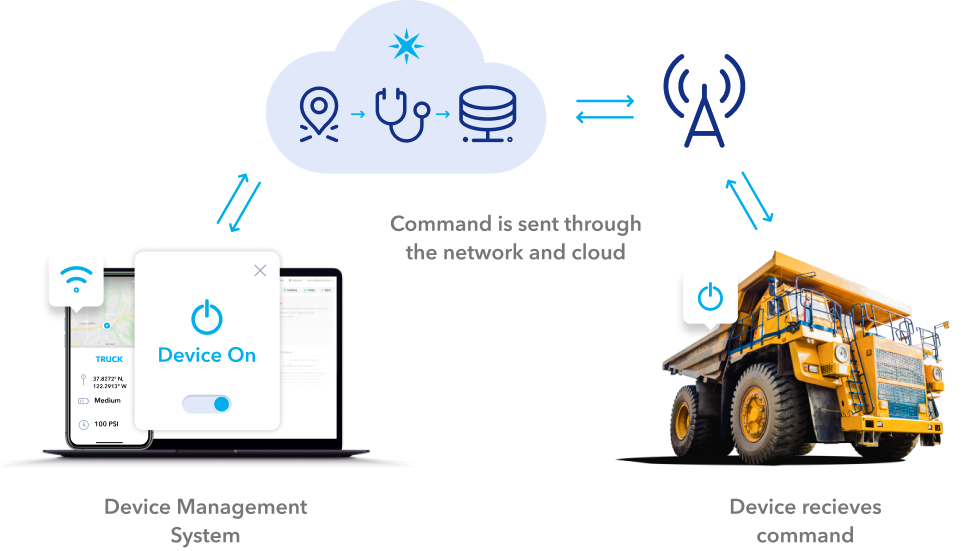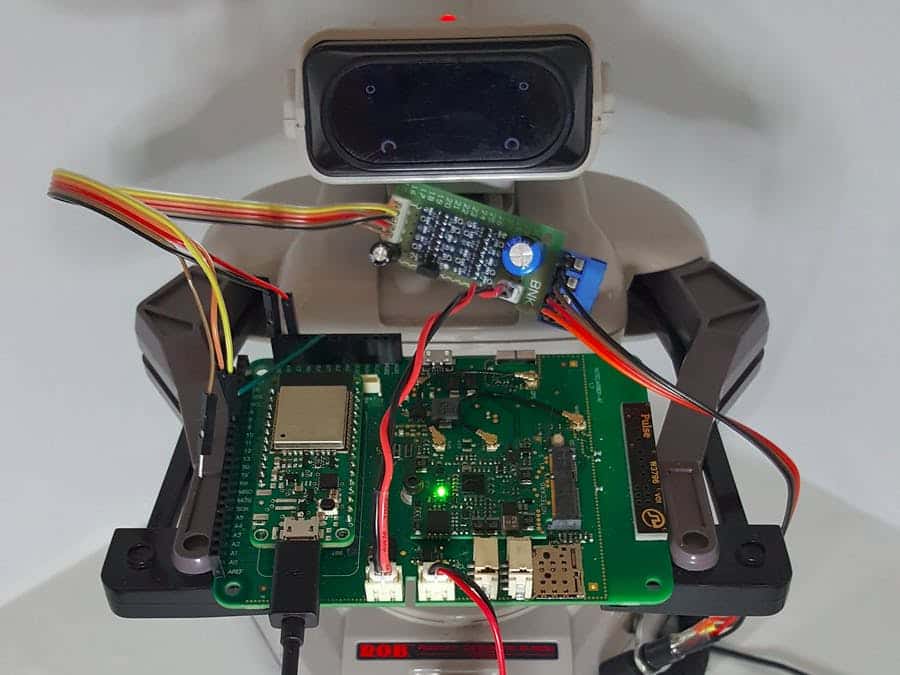Remote IoT device control software free is more than just a tech buzzword; it's the future of connectivity and automation. Imagine being able to manage your smart devices from anywhere in the world without spending a dime. Sounds too good to be true? Well, it's not. In this guide, we'll dive deep into the world of free remote IoT device control software, uncovering the best tools, tips, and tricks to help you take control of your smart home or business. So buckle up, because we're about to embark on a journey that will change the way you think about IoT.
As the Internet of Things (IoT) continues to grow, more and more people are looking for ways to manage their connected devices remotely. Whether you're a homeowner trying to save energy or a business owner aiming to streamline operations, having the right software can make all the difference. And the best part? You don't have to break the bank to get it. There are plenty of free options out there that offer robust features and seamless integration.
But before we jump into the nitty-gritty, let's address the elephant in the room. Not all free software is created equal. Some might lack essential features, while others could compromise your security. That's why we're here—to help you navigate the vast landscape of remote IoT device control software and find the perfect solution for your needs.
Read also:Christian Kane The Charismatic Actor You Cant Help But Love
Table of Contents
What is Remote IoT Device Control Software Free?
Why Choose Free Software for IoT Devices?
Top 10 Free Remote IoT Device Control Software
Security Considerations for Free IoT Software
Setting Up Your First Free IoT Control System
Benefits of Using Free IoT Control Software
Read also:Who Is Josh Grobans Twin Brother Unveiling The Mystery Behind The Famous Lookalike
Comparing Free vs Paid IoT Solutions
The Future of Free Remote IoT Control
Wrapping It Up: Your Next Steps
What is Remote IoT Device Control Software Free?
Let's start with the basics. Remote IoT device control software free refers to any software that allows you to manage and monitor your IoT devices from a distance, all without costing you a penny. These tools typically connect to your smart devices via the internet, enabling you to control them from your smartphone, tablet, or computer. From adjusting your thermostat to turning off lights, the possibilities are endless.
How Does It Work?
At its core, remote IoT control software acts as a bridge between you and your devices. Here's how it typically works:
- Connection: The software connects to your IoT devices through Wi-Fi or Bluetooth.
- Interface: You interact with the software through an intuitive dashboard or app.
- Commands: You send commands to your devices, which are executed in real-time.
It's like having a virtual assistant that can handle all your smart home needs, 24/7. And the best part? You don't have to pay a dime for it.
Why Choose Free Software for IoT Devices?
Now, you might be wondering, "Why bother with free software when there are so many paid options out there?" Great question. Here are a few reasons why going free might be the right choice for you:
- Cost-Effective: Let's face it, saving money is always a good thing. Free software allows you to enjoy the benefits of IoT without the hefty price tag.
- Community Support: Many free IoT solutions are open-source, meaning they have a vibrant community of developers and users who are always ready to help.
- Customization: If you're into tinkering, free software often offers more flexibility and customization options compared to their paid counterparts.
Of course, there are trade-offs. Free software might not always offer the same level of support or features as paid options. But for many users, the benefits far outweigh the drawbacks.
Top 10 Free Remote IoT Device Control Software
Now that we've established why free software is worth considering, let's take a look at some of the best options available:
1. Home Assistant
Home Assistant is one of the most popular free IoT control platforms out there. It offers a user-friendly interface and supports a wide range of devices. Plus, its open-source nature means you can tweak it to your heart's content.
2. OpenHAB
OpenHAB is another great option for those looking for a free and flexible IoT control solution. It's highly customizable and works with virtually any smart device you can think of.
3. Node-RED
If you're into programming, Node-RED is a fantastic choice. It allows you to create complex workflows and automations using a simple drag-and-drop interface.
4. Blynk
Blynk is perfect for beginners who want an easy-to-use app to control their IoT devices. It offers a wide range of widgets and supports various hardware platforms.
5. ThingsBoard
ThingsBoard is a powerful IoT platform that offers advanced features like data visualization and device management—all for free.
6. IoTIFY
IoTIFY is a cloud-based platform that makes it easy to connect and control your IoT devices. It's great for both personal and commercial use.
7. Cayenne
Cayenne is a user-friendly platform that offers a drag-and-drop interface for building IoT projects. It's perfect for those who want to get up and running quickly.
8. Freeboard
Freeboard is a web-based dashboard that allows you to visualize and control your IoT devices. It's simple to use and offers a lot of flexibility.
9. MyDevices
MyDevices is a cloud-based platform that makes it easy to connect and manage your IoT devices. It offers a wide range of features and integrates with popular hardware.
10. MQTT Dash
MQTT Dash is a lightweight app that allows you to control your IoT devices using the MQTT protocol. It's great for those who want a simple and efficient solution.
Security Considerations for Free IoT Software
While free IoT software offers many benefits, it's important to consider the security implications. After all, you don't want someone hacking into your smart home and taking control of your devices. Here are a few tips to keep your system secure:
- Use Strong Passwords: Always use strong, unique passwords for your IoT devices and accounts.
- Enable Two-Factor Authentication: If your software supports it, enable two-factor authentication for an extra layer of security.
- Keep Software Updated: Regularly update your software to ensure you have the latest security patches.
Remember, security should always be a top priority when it comes to IoT. Don't let the convenience of free software compromise the safety of your devices.
Setting Up Your First Free IoT Control System
Ready to dive in and set up your first free IoT control system? Here's a step-by-step guide to get you started:
Step 1: Choose Your Software
Pick one of the free IoT control software options we discussed earlier. For this example, let's go with Home Assistant.
Step 2: Install the Software
Download and install Home Assistant on your computer or server. You can also use a Raspberry Pi if you're feeling adventurous.
Step 3: Connect Your Devices
Add your IoT devices to the system by following the on-screen instructions. Most software will guide you through the process step-by-step.
Step 4: Customize Your Dashboard
Once your devices are connected, customize your dashboard to suit your needs. Add widgets, create automations, and set up notifications.
Step 5: Test and Tweak
Test your system thoroughly to ensure everything is working as expected. Don't be afraid to tweak settings and experiment with different configurations.
Benefits of Using Free IoT Control Software
By now, you're probably wondering what makes free IoT control software so great. Here are a few key benefits:
- Cost Savings: As we've already mentioned, free software saves you money.
- Flexibility: Many free options offer more flexibility and customization than their paid counterparts.
- Community Support: Open-source software often has a large and active community of users and developers.
- Learning Opportunities: Using free software can be a great way to learn more about IoT and programming.
Whether you're a tech enthusiast or just looking to save some cash, free IoT control software has something to offer everyone.
Comparing Free vs Paid IoT Solutions
Now that we've explored the world of free IoT control software, let's compare it to paid solutions. Here's a quick rundown of the pros and cons:
Free IoT Software
- Pros: Cost-effective, flexible, and great for learning.
- Cons: Limited support, fewer features, and potential security risks.
Paid IoT Software
- Pros: More features, better support, and enhanced security.
- Cons: Higher cost, less flexibility, and often tied to specific hardware.
Ultimately, the choice between free and paid software comes down to your specific needs and budget. If you're just starting out or looking to experiment, free software might be the way to go. But if you need more advanced features and support, paid solutions could be worth the investment.
Troubleshooting Common Issues
No matter how good your software is, you're bound to run into issues from time to time. Here are a few common problems and how to fix them:
Issue 1: Devices Not Connecting
Solution: Make sure your devices are properly paired and that your Wi-Fi or Bluetooth is working correctly. Restart your router if necessary.
Issue 2: Software Crashing
Solution: Update your software to the latest version. If the problem persists, try reinstalling it.
Issue 3: Slow Response Times
Solution: Check your internet connection and ensure your devices are not overloaded with commands.
Remember, troubleshooting is all about patience and persistence. Don't give up if things don't work right away. With a little effort, you can usually get your system up and running smoothly.
The Future of Free Remote IoT Control
As the IoT landscape continues to evolve, so too will the software that powers it. We can expect to see more advanced features, better security, and even more integration with other smart technologies. Free software will undoubtedly play a major role in this evolution, offering users the ability to innovate and experiment without financial constraints.
So what does the future hold for remote IoT device control software free? Only time will tell, but one thing is certain: the possibilities are endless. Whether you're a homeowner, a business owner, or a tech enthusiast, there's never been a better time to get involved with IoT.
Wrapping It Up: Your Next Steps
There you have it—a comprehensive guide to remote IoT device control software free. We've covered everything from the basics to advanced tips and tricks, all in the hopes of helping you take control of your smart home or business. Remember, the key to success with IoT is experimentation and learning. Don't be afraid to try new things and push the boundaries of what's possible.
Before we part ways, let me leave you with a final thought. The world of IoT is changing rapidly, and staying informed is crucial. Be sure to check out our other articles for more tips and insights on all things tech. And if you found this guide helpful, don't forget to share it with your friends and colleagues. Together, we can build a smarter, more connected future.
So what are you waiting for? Get out there and start exploring the world of free IoT control software. Your


